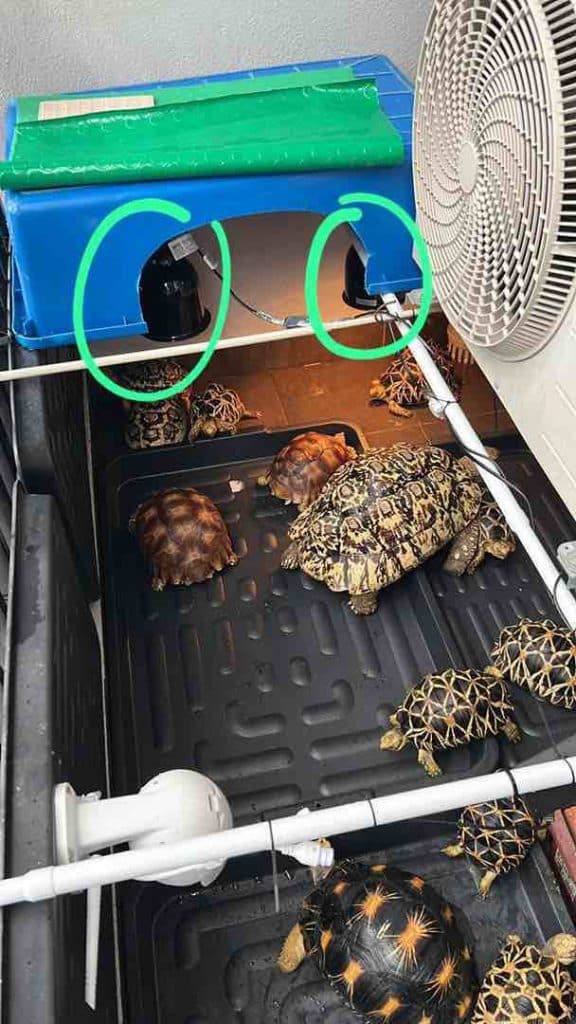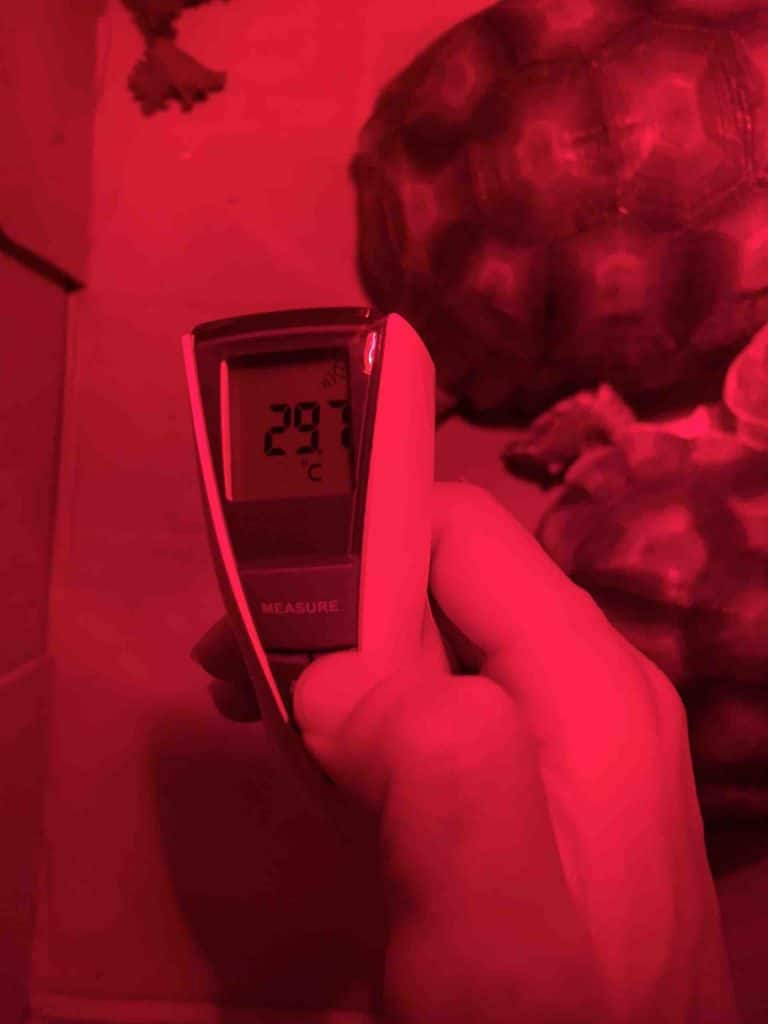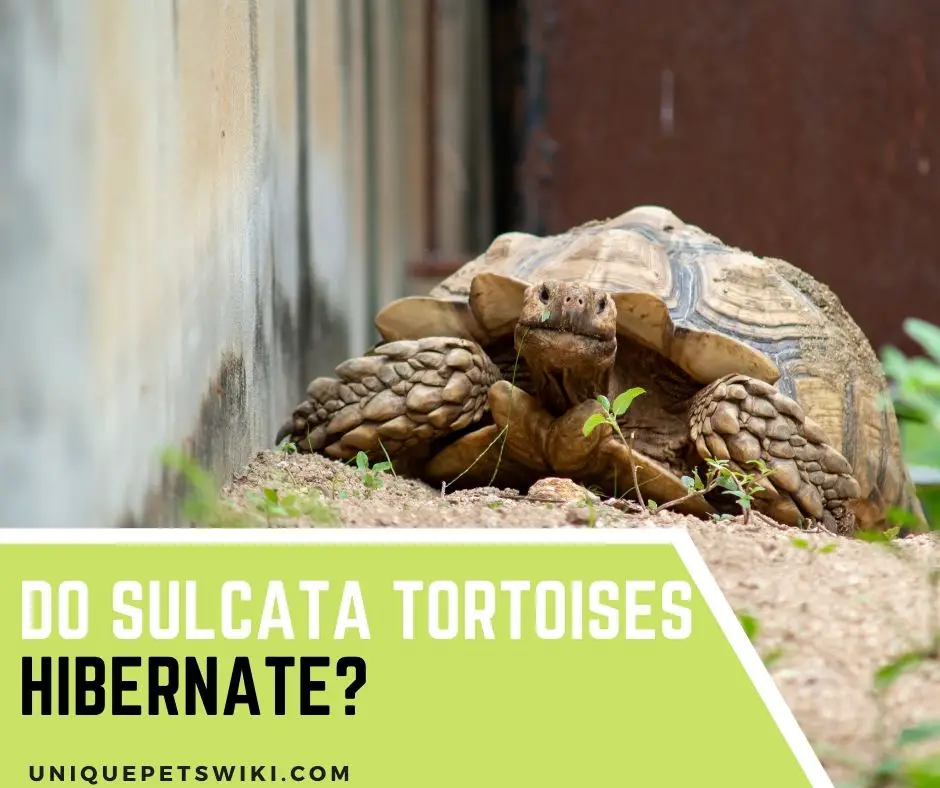“Do Sulcata Tortoises Hibernate?” Let’s find out together! There is a myth that all tortoise species hibernate. This can make you wonder what this means and whether your sulcata tortoise also hibernates.
Sulcata tortoises originate from the desert region of Africa, and they do not hibernate even during the winter period. Sulcata tortoises can tolerate low temperatures, but you will need to keep them warm at all times, especially during the colder months.
In this article, we will help answer your questions about whether sulcata tortoises can hibernate and how you can take care of them during the winter period.
Contents
Do Tortoises Hibernate In The Winter?
Yes, some tortoise species hibernate in the winter. But some tortoise species do not hibernate at all. Those tortoise species that hibernate during the winter do this to help reset their bodies.
In the wild, those tortoise species can also hibernate when there is a lack of food. However, this is not an issue when you are keeping your tortoise as a pet. Here is a table showing different tortoise species and whether they hibernate or not.

However, they slow down their metabolism to survive the season
| Tortoise species that hibernates | Tortoise species that does not hibernate |
| Desert tortoise | Sulcata tortoise |
| Russian tortoise | Leopard tortoise |
| Hermann’s tortoise | Egyptian tortoise |
| Greek tortoise | Golden ‘Greek’ tortoise |
| Marginated tortoise | Radiated tortoise |
| North American box turtles | Hinge-back tortoise |
| Slider turtles | Red footed tortoise |
| North American water turtles | Yellow footed tortoise |
| Asian box turtles | |
| African side-neck turtles |
Do Sulcata Tortoises Hibernate/Brumate?
No, sulcata tortoises do not hibernate/brumate during the winter. They can tolerate low temperatures but you should ensure that your sulcata tortoises are not kept in a chilled and wet area or outdoors during the winter.
They need enough warmth because their body can start to shut down and die if they are exposed to low temperatures for a long time.
What Is Hibernation?
Hibernation is the process where an animal’s activity and metabolic process are reduced to help save energy during the winter period or food scarcity. Hibernation is quite common in many mammals such as bears, bats, and small rodents.
However, cold-blooded animals like snakes, tortoises, etc., can undergo a similar process, known as brumation.
Differences Between Hibernation And Brumation
Both hibernation and brumation is the process of inactivity where the body temperature, respiratory rate, metabolic rate, and heart rate of an animal drops.
Animals like mammals and small rodents usually hibernate for several days to months based on the temperature in the area and the animal’s condition.
Whereas brumation occurs in cold-blooded animals as they rely on their environment to regulate their body temperature. In the wild, reptiles, and amphibians hide underground while dropping their activity, heart rate, body temperature, and respiratory rate during the winter period.
The major difference between hibernation and brumation is that bromating reptiles will move on warmer winter days to find food and water, while hibernating reptiles will be in a deep sleep and will not move at all during the winter period.
How To Take Care Of A Sulcata Tortoise In The Winter
It is quite easy to take care of sulcata tortoises during the winter. All you have to do is ensure there is sufficient temperature in their enclosure. You need to avoid keeping them in cold weather, especially the baby and juvenile sulcata tortoises, because they may not make it through the winter.
However, adult sulcata may survive, but the condition is not quite favorable for them. Instead of exposing your tortoise to this kind of risk and stress, you can simply move them inside. This process is called overwintering, and it involves providing warmer temperatures for the tortoise in an indoor setting.
Shelter For Sulcata Tortoises In Winter
As stated above, you should consider moving your sulcata tortoise indoors once the temperature drops below 55F. You should avoid housing your tortoise in cold garages or cold basements during the winter as the temperature can also reduce quickly.
Instead, you will need to house your sulcata tortoises in a heated room. This can be a heated basement, garage, or other location that can be heated or is insulated. You can also house your sulcata tortoise in a spare room.
Housing your tortoise in a spare room is a great idea as you don’t have to make any changes to the room. You can also build an insulated house equipped with an oil-less heater or heat lamp.

Heating For Sulcata Tortoises In Winter
You can use a heat lamp or oil-less heater to provide heat for your sulcata tortoise. You can then ensure your tortoise gets enough heat by locking them out of the burrows and keeping them in a designated heated house.
Since baby and juvenile tortoises are already kept in an indoor enclosure, all you have to do is stick to their indoor temperature range, and you don’t have to force your sulcata tortoise to hibernate.
Cold Weather Safety For Sulcata Tortoises
Sulcata tortoises are cold-blooded animals, and exposing your tortoise to cold temperatures makes them slower. Here are some cold weather safety tips for sulcata tortoises.
Check your sulcata tortoise enclosure to ensure your tortoise did not fall asleep outside of its shelter before the weather becomes too cold to make it to the enclosure on its own. You can then help place them in their shelter if they are outdoors.
Note: Providing a heated habitat for your tortoise does not mean they will use it when they should, and you should be on hand to help them out.
Frequently Asked Questions (FAQs)
How Cold Is Too Cold For A Sulcata Tortoise?
The temperature is too cold for your sulcata tortoise once it goes below 45F. A suitable temperature range for sulcata tortoise’s enclosure is between 77-95F during the day. You will also need to provide a basking spot with a temperature of around 100F for your sulcata tortoise.
Do sulcata tortoises Brumate?
Sulcata tortoises do not brumate naturally in the wild. Baby and juvenile sulcata tortoise may die and not make it through the winter if you force them into brumation. However, older sulcata tortoises may survive below freezing point, but the condition is not suitable for them.
Can sulcata tortoises survive winter?
Sulcata tortoises may freeze to death if the temperature in their enclosure drops too low for a long time. However, they can survive the winter if you can provide them with a heated enclosure.
Conclusion
Unlike some tortoise species, sulcata tortoises do not hibernate in the winter. They are quite vulnerable to cold and extreme temperatures despite having the ability to tolerate the cold temperature.
This means you need to prepare heated housing for your sulcata tortoise if you are living in a place that experiences cold winter months and plans to get them as a pet.
